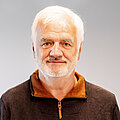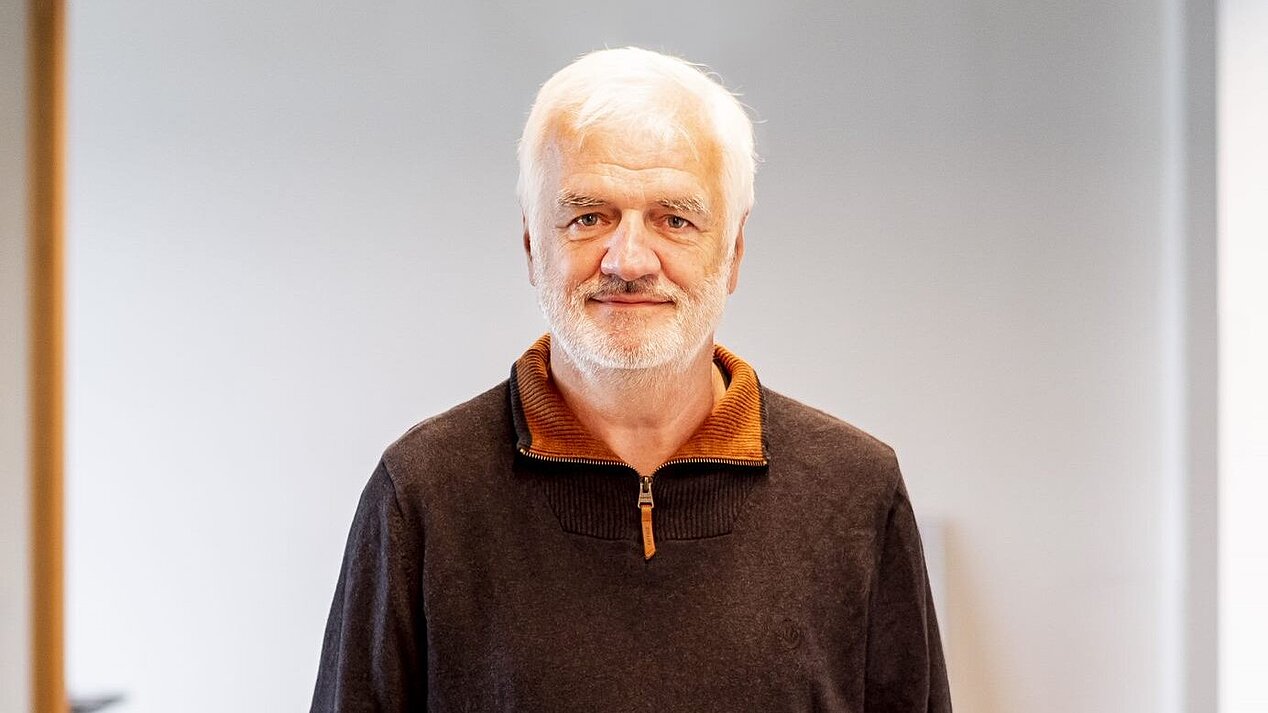Hello and welcome to Die Kulturmittler [The Cultural Mediators] podcast. Between the war in Ukraine, the Coronavirus pandemic, impending famine in East Africa, and the flood disaster in Pakistan, it’s clear that global peace and security is threatened not only by weapons, but also by health and climate crises. What is needed, therefore, is a holistic peace and security policy. But how can this be achieved? To discuss opportunities and obstacles, I’m joined today by Hans-Joachim Giessmann. Welcome, Mr. Giessmann, please introduce yourself.
Giessmann: My name is Hans-Joachim Giessmann. I’m Director Emeritus of the Berghof Foundation in Berlin, a non-governmental organisation working since more than 50 years to support communities worldwide to find peaceful solutions to violent conflict. I’ve spent almost 40 years in peace and conflict research, and I am also a member of the German Bundestag’s Study Commission on Afghanistan.
What constitutes today’s peace and security policy? How has it changed?
Giessmann: It has become much more complex since different crises have interlinked. We now talk about “crises landscapes”. We also know much more about the consequences of these systemic crises. Through social media, we can follow what is happening in real time. Everything has become much more transparent and this means that peace and security policy has a much greater focus on communication and outreach. It needs to be accessible to the communities it seeks to address. As a result, peace and security policy requires the interaction of state and civil society actors much more so than in the past.
In today’s discourse on peace and security policy, we often hear the term “human security”. What is behind this term and what does it encompass?
Giessmann: “Human security” first appeared as a concept after the end of the Cold War, with the aim of prioritising the security of people instead of the security of states. There were two different approaches: The Canadian approach which focused on freedom from fear or violence; and the Japanese approach, which focused on freedom from worry (for example, freedom from poverty). What both had in common, however, was that the human being was to be at the forefront. This approach first appeared in the field of development via the United Nations in the early 1990s and has since evolved. Today, it is reflected in the Sustainable Development Goals.
To what extent is human security relevant today?
Giessmann: I think it is of great importance. We live in a time in which old, outdated security concepts – focused on violence and war – are once again coming to the fore. We can see the consequences of this in the current nature of global politics, which leaves many communities worldwide in dire poverty and hinders the pursuit of solving urgent problems.
The call for “hard power” i.e., the use of military and economic sanctions – has been growing, including in Germany. This is not least due to the vehement demands for arms deliveries to Ukraine or the special fund of 100 billion euros for the German Armed Forces established in June 2022. How do you see the shift in German peace and security policy?
Giessmann: Well, security policy seems to take precedence over peace policy, and crisis management over long-term peacebuilding. Here we also see the connection to popular culture: images from war zones and narratives – spread via social media – reinforce the desire for simple solutions to complex problems. This is a challenge that did not exist 30 or 40 years ago. The interesting thing is that if you talk to representatives of the military, they often see it much more critically. They don't see the use of force as the solution. They believe the solution actually lies in transforming these conflicts away from confrontation towards cooperation.
[Human security] is of great importance. We are living in a time in which old, outdated security concepts […] are once again coming to the fore. […] Security policy seems to [override] peace policy, and crisis management long-term peacebuilding.
What is Germany’s focus in peace and security policy, especially regarding a holistic approach to human security and civil crisis prevention?
Giessmann: Traditionally, Germany is strong when it comes to the civilian engagement — in the provision of resources, in technical assistance for development, in support for the rule of law and the promotion and political participation of women. Germany is a sought-after partner in all these areas, but it still has some catching up to do when it comes to the instruments of diplomacy and direct state-building. There are strong demands for Germany to play a stronger mediating and negotiating role in conflicts around the world.
There is also a need to operationalise and strengthen a holistic approach through inter-ministerial cooperation. The main security concepts have so far been developed by the Ministry of Defence. The civilian concepts, presented by the Federal Government were always much briefer, with actual specifications made by the specialised ministries involved. Reality lags far behind the claims made, and that must change.
The military […] often […] don't see the use of force as the solution. They believe the solution actually lies in transforming conflicts away from confrontation towards cooperation.
From an international perspective, I think that Germany should be more active in security policy and crisis prevention, especially in areas where relations are not burdened by the colonial past. Ethiopia, for example, is one of the countries in which a greater German engagement and responsibility is welcomed by Ethiopian local actors.
What role do you see for international cultural relations (ICR) in civil crisis prevention?
Giessmann: For me, keeping peace is itself already a cultural achievement. But what I find regrettable is that we know much more about the causes of war than about the causes of peace. So why do people invest in peace? We must, I think, start with ourselves, with culture and its meaning, and learn about the way in which relations between people are shaped. It’s about understanding culture, and art for that matter, as a field of learning. Once you understand that, you can then develop tailor-made programmes that centre cooperation and interaction in the formation of peaceful relationships.
What challenges do you see for the future of international cultural relations? The current budget debate indicates that the culture sector and cultural organisations in Germany, of which the Institut für Auslandsbeziehungen, ifa, is one, will have to reckon with financial cuts in the coming year.
Giessmann: I think that this is very unfortunate. For years, we have experienced that activities that focus on a shift in mindset and cultural sensitivity rather than immediate economic output are the first to be cut. This applies not only to exchange programmes and scholarships, but also, for example, to language programmes at universities that are less popular. In my opinion, this is perhaps understandable in the short term, but in the long term it is a strategic mistake. Especially as we are facing an increasing struggle between opposing world orders with diametrically different values and logics.
How can we prevent ICR initiatives – especially those from the West – from being perceived as unwelcome interference or actually becoming unwelcome interferences?
Giessmann: I think that a certain form of modesty and realism are prerequisites for making decisions with a lasting impact. Of course, the guiding principle must always be that German cultural policy is measured against the values accepted and anchored in Germany, because support for these activities abroad naturally also requires political acceptance and support domestically. But it also should not be about imposing one’s own ideas and values without taking into account local culture and context. There is a tendency, especially in cultural relations, to concentrate on the young urban elites and not to take into account the population as a whole, especially in the countryside where traditional values are often deeply rooted. As a result, such initiatives tend to not lead to positive cultural changes in civil society, but rather towards alienation and an increase in conflicts.
So, what alternatives are being discussed in the debate on civil crisis prevention?
Giessmann: Currently, the focus is mostly on reviewing the status quo of German crisis prevention by looking at its obvious failures across many fields. There is a need to prevent crisis prevention from moving towards a solely security focused approach. One important factor I mentioned earlier is the role of networking in strengthening existing capacities, supporting local actors through mediation, and better organising contributions to humanitarian security.
There is a tendency […] in cultural relations, to concentrate on young urban elites and [to ignore] the countryside where traditional values often have deep roots.
Having said all that, I am actually quite pleased that in German foreign policy, civil crisis prevention has gained significant support in recent years and that the rifts that used to exist between state and civil society actors have largely been bridged. But this must be constantly nurtured and developed and we should recognise that the synergies between a variety of methods and actors can ensure a more accurate and culturally sensitive approach to crisis prevention.




